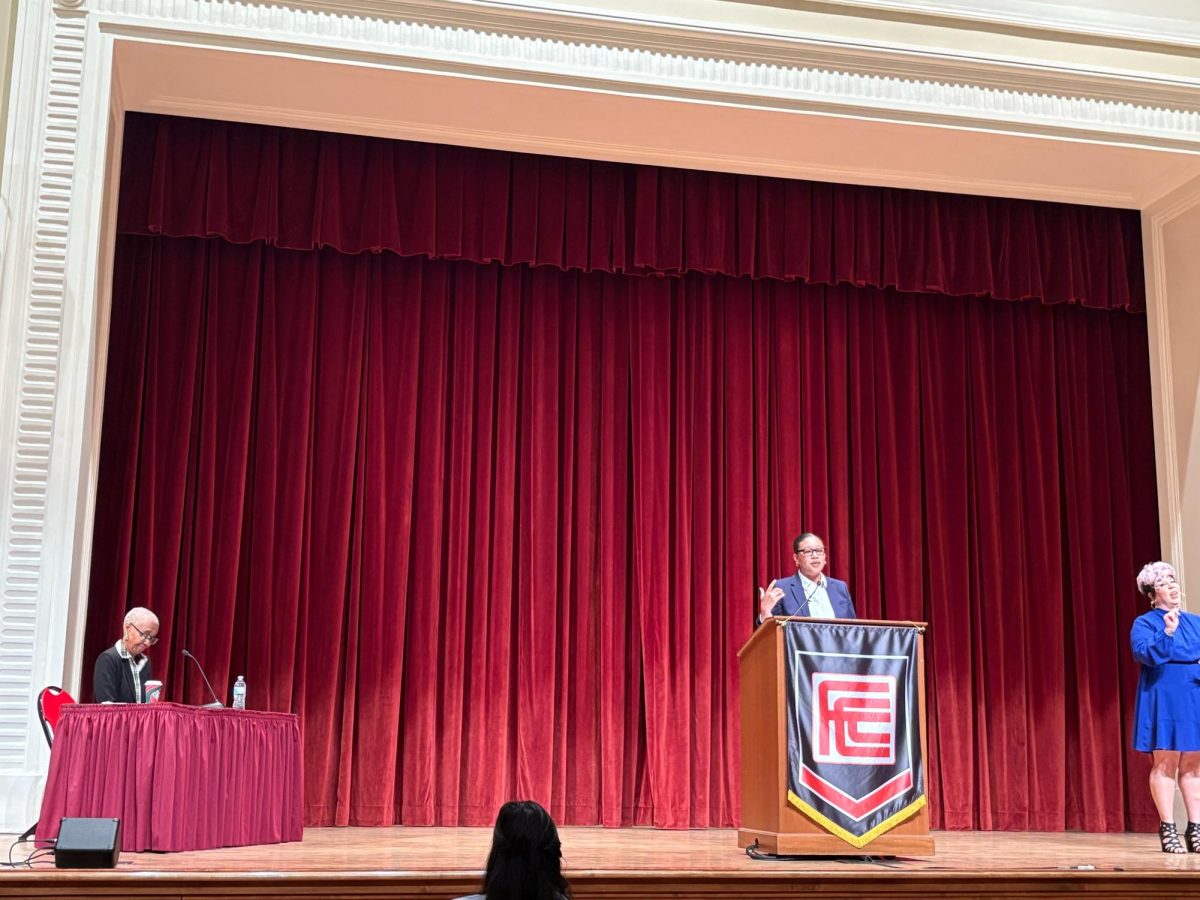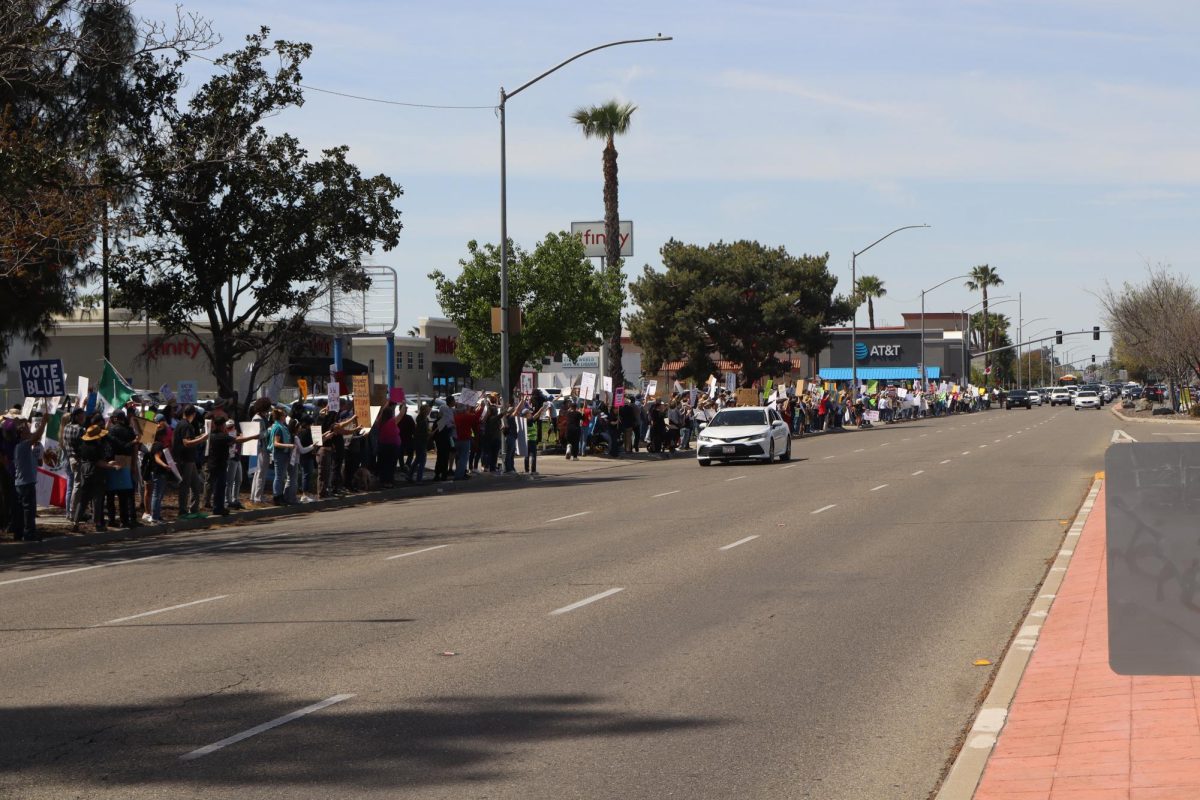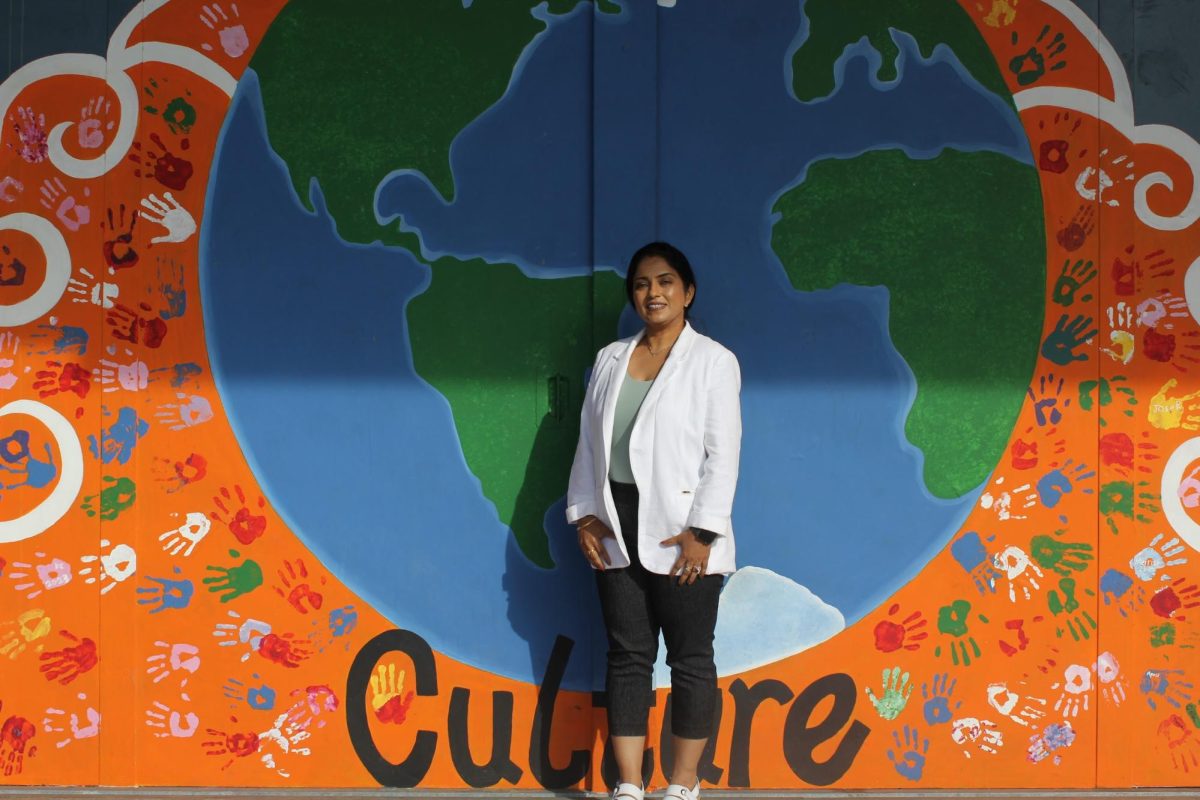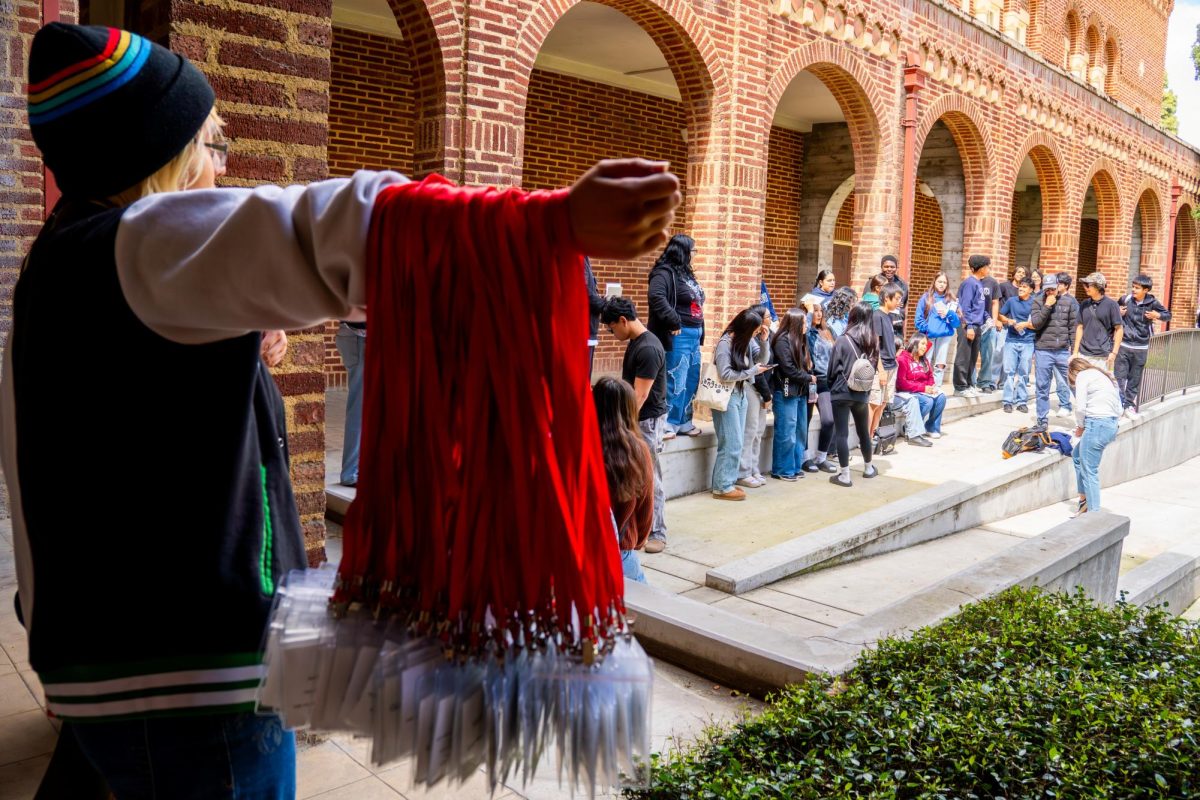Paul Gilmore, history and political science professor at Fresno City College, has made quite a splash since coming to FCC in 2004.
“He is unreal, and the admiration that his students have for him is incredible,” says Sean Burdine, FCC student and ASG senator. “He makes the classroom come alive and is everything that I could want in a teacher. I have joked around in the past with my friends and fellow classmates that he seems like a teacher out of a movie because he is just that good.”
Burdine has worked with Paul Gilmore in different capacities. “As a student, he has been my instructor and my club advisor; as a member of student government, I have sat in on committees with him and see him every week in on our ASG meeting; as a friend, he regularly offers advice and help; on top of everything that he does, he still regularly promotes, assists and attends a multitude of events on campus and in the community,” said Burdine. “He is truly remarkable.”
Besides teaching, Gilmore is very involved with the inner workings of this college. He attends Academic Senate meetings as a representative from the faculty union; ASG meetings, as the advisor for Sustainable Action club, and he helps to run campus Colloquium events.
“He’s just passionate about what he teaches,” said Vanessa Cabrera, a student in Gilmore’s History 12 class. Cabrera says that Gilmore’s energy and excitement makes a difference in learning to appreciate history, especially in the middle of the day, when students are ready for their afternoon nap.
Gilmore lived in Baraboo, Wisconsin, a little town of about 10,000, until he graduated from high school. “You could go outside and spit into the air and hear your spit freeze as it landed,” said Gilmore. He moved away to attend Furman University, a private liberal arts school in South Carolina, because “it was warm,” he said.
He originally considered focusing on literature and art but a class at Furman University convinced him otherwise. Professor Steve O’Neil, Gilmore’s history professor, made it clear to him that history isn’t just dates and names, it’s an “argument about the past.”
The young Gilmore was intrigued. “The idea that you could ask those questions (about history) and begin to answer them using historical analysis, a kind of critical historical imagination,” explained Gilmore, “sounded kind of good to me.”
He said that challenging myths of the past was also appealing. “There are stories we tell ourselves about ourselves that are wrong,” Gilmore said. “It’s always nice to kind of take a look at those myths and begin to complicate the story a little bit, to kind of debunk them.”
Gilmore explored these concepts in-depth, as he continued his education in history at the University of Wisconsin and Georgia Institute of Technology. Nine years of higher education equipped Gilmore with a BA in History from Furman University, an MA in History from the University of Wisconsin, Milwaukee and an MS in History of Technology from Georgia Tech. He completed his doctoral coursework and began his dissertation on “the history of supermarkets in Los Angeles and Chicago between 1925 and 1955.”
“I wanted to do the history, not of your typical workers, like steel workers or miners or something like that, but people that you don’t even think of, in day-to-day life, like the checker, the clerk, and the stocker,” he said.
When he started his job at FCC, Gilmore said he resolved not to continue his dissertation. “It made me realize that I liked teaching a heck of a lot more than I liked research,” said Gilmore. He especially enjoys instructing students at FCC, who “seem to have made a conscious decision to come to school.”
FCC has many students who have seen their parents and guardians struggle, and who have had to work for a living. “There is something about the fact that students here, not all of them but enough of them, are motivated to really do something,” said Gilmore.
Gilmore’s students appreciate what he contributes to their lives. “Students just are flat devoted to him,” said Jerry Thurston, Interpersonal Communications professor at FCC. “You always hear students talking in hallways, and just even to you, about ‘Gilmore, Gilmore.'”
Thurston said that after watching Gilmore give a special presentation on the history of immigration, he got to experience what other Gilmore‘s students see weekly. “That guy’s a really dynamic, energetic, fun, interesting teacher,” said Thurston.
Aside from making class interesting, Gilmore’s primary goal is to prepare his students.
“It’s not about getting a better job; it’s not about learning names and dates; it’s about getting the tools that you need to best defend your liberties,” said Gilmore. “There are other things that you do with your life besides work for somebody, and history classes are good for that other thing, for those other things.”





